The Types of Devices That Emit Blue Light


What Is Blue Light?
Visible light may look white, but it’s actually a range of colors. Each color has a different wavelength. Blue light is made of short wavelengths with a lot of energy. Sunlight is the main source of it, but blue light also comes from some light bulbs and electronic devices.

Does Blue Light Hurt Your Eyes?
In large amounts, high-energy light from the sun -- like ultraviolet rays -- can increase your risk of eye diseases. Blue light has high energy, too. That’s raised concern about whether blue light from digital screens is harmful. We need more research to determine if the amount of blue light that you get from most common devices causes eye damage in people.
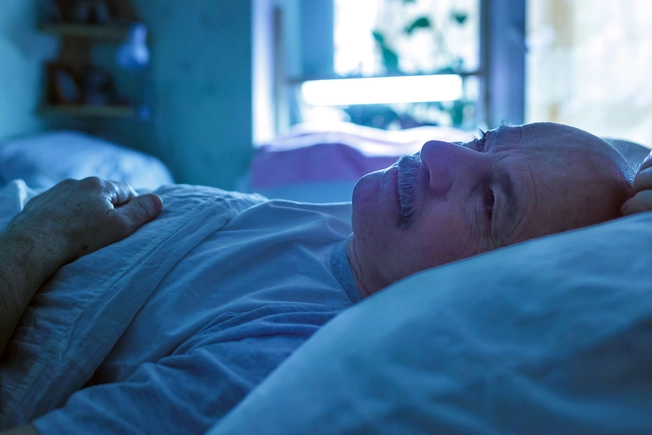
Can Blue Light Affect Your Health?
Too much man-made light can confuse your internal body clock. That’s called your circadian rhythm. Blue light can slow the release of melatonin. Your body sends out this chemical when it’s time for bed. Without enough of it, you may have trouble getting a good night’s rest. Poor sleep is linked to health problems like high blood pressure, obesity, depression, type 2 diabetes, heart disease, and even some kinds of cancer.
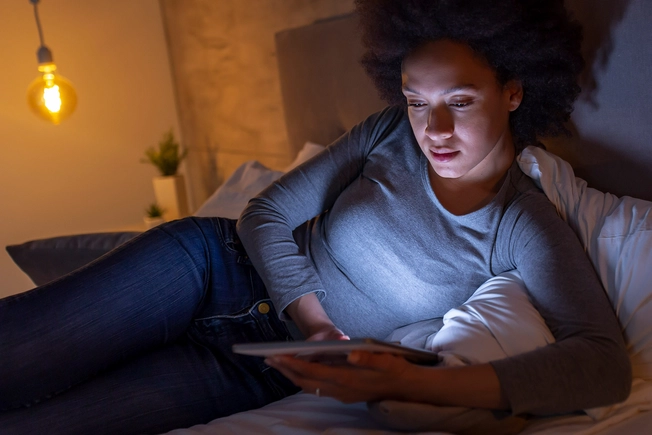
Smartphones and Tablets
These put out more blue light than any other color. But your device may have a “night” mode. It lets you give your screen an orange tint with longer-wavelength light. You can often set it up to kick on automatically every night. Experts aren’t sure if switching to a screen with less blue is enough to keep your sleep rhythms on track. That’s because using your device excites your brain, separately from the light.

Laptops and Computer Monitors
These are just big versions of your smartphone or tablet. That means they send out the same kind of light. Your laptop or computer may have a night shift option, just like your phone. If not, you can install a computer program or use filters to lessen the blue tint to your computer screen.

Fluorescent and LED Light Bulbs
These use less electricity than traditional incandescent light bulbs. But they put out more blue light. When you buy compact fluorescent (CFL) bulbs or LED (light-emitting diode) lights for your home, opt for a kind that’s coated to put out “warmer” light. Consider using a red bulb in your bedside lamp or nightlight. That’s the color most helpful for sleep.

LED Televisions
Lots of flat-screen televisions are backlit with LED lighting. Some newer TVs may have an internal blue-light filter that you can switch on. Or you may buy a blue-light filter that goes over the screen. You can also adjust the color and brightness of your TV by hand.
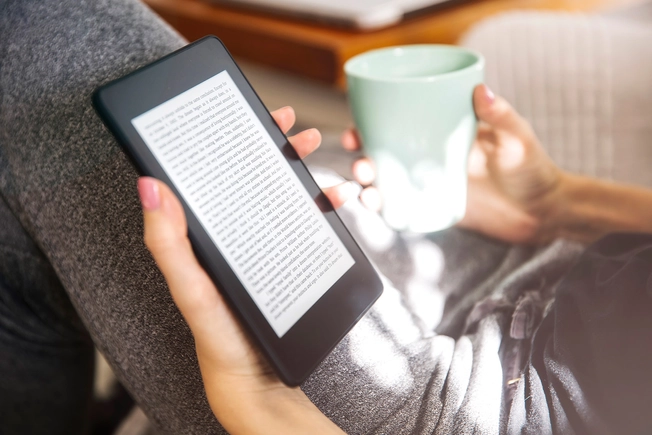
E-Readers
Digital readers are handy. But you might not doze off easily if you use one at night. One small study showed that people who used an “e-reader” in the hours before bedtime took longer to fall asleep than those who read from a printed book. They also felt less alert the next morning. Some e-readers have a setting to reduce blue light. Otherwise, you can simply turn down the overall light level on your device.
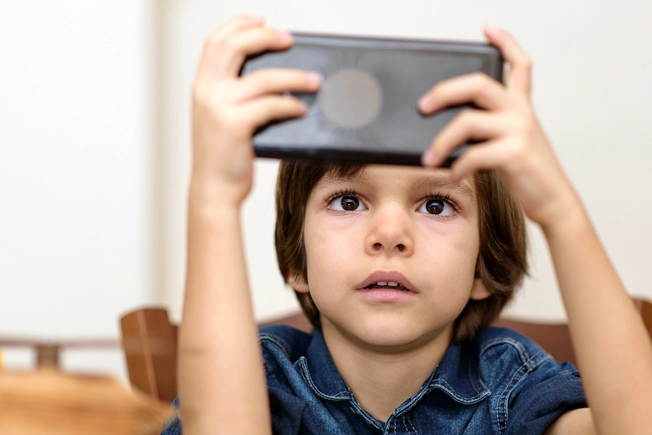
Handheld Gaming Systems
These use LED lights just like other digital screens. You may want to limit how much your child uses them at night. Kids’ eyes can’t filter blue light as well as adults'. So it may slow their release of melatonin even more than it does for grownups. Video games also stimulate their minds, which can keep them up. The American Academy of Sleep Medicine suggests that kids put these devices away at least 30 minutes before bed.
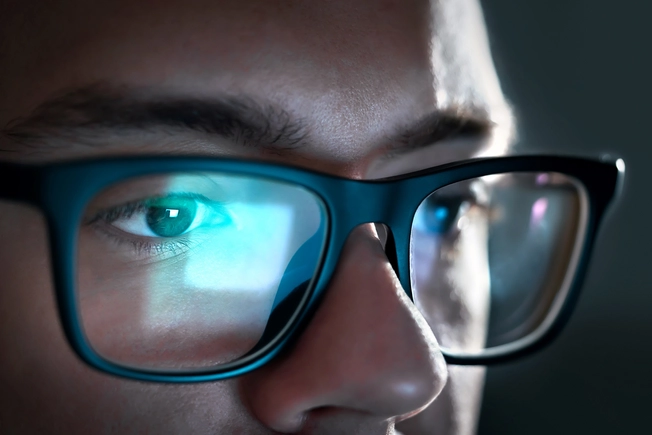
How to Lessen Blue Light
You can give blue-blocking glasses a shot. An anti-reflective coating on your regular glasses may also lessen blue light and glare. That could ease eyestrain. Try to turn devices off 1-2 hours before bed. If you can’t, switch to night mode and avoid bright screens. Wearing amber-tinted glasses a couple of hours before bed might help you sleep.

Other Ways to Help Your Vision
Your eyes might get tired and dry if you work at a computer all day, especially if you don’t blink much. Just like you take coffee breaks, the American Academy of Ophthalmology recommends that you give your eyes timeouts. Look at a spot 20 feet away from your screen, for 20 seconds, every 20 minutes. Eye doctors call this the “20-20-20” rule.

Kids and Screens
Kids need some blue light from the sun. It’s actually good for their vision. But lots of it from device screens is linked to ADHD, obesity, and nearsightedness. The American Academy of Pediatrics suggests:
- Keep kids away from screens until they’re 2, unless it’s just a video chat.
- Limit screen time to 1 hour a day for kids 2-5.